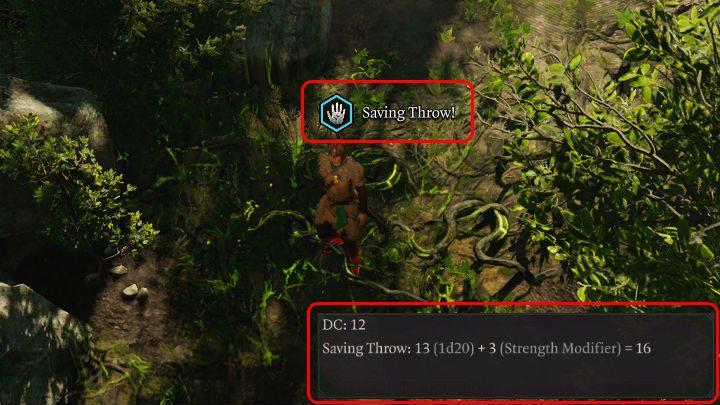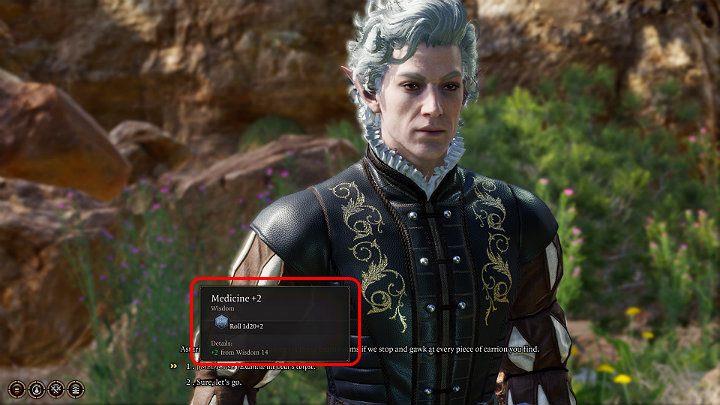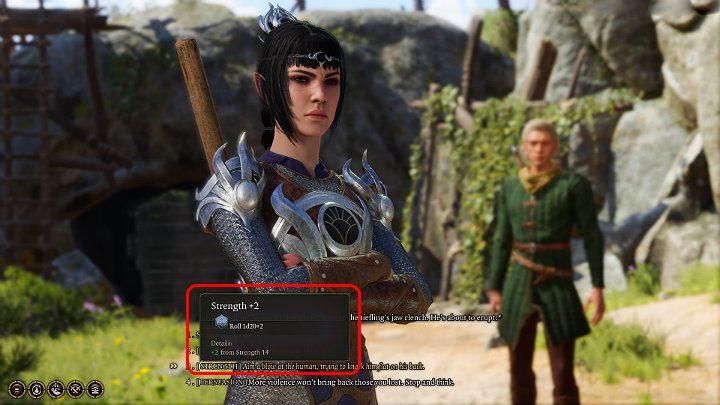In the intricate world of Baldur’s Gate 3, character abilities serve as the backbone of gameplay, shaping every decision and encounter. Players must navigate a complex web of Strength, Dexterity, Constitution, Intelligence, Wisdom, and Charisma—each ability influencing not only combat effectiveness but also social interactions and exploration tactics. This guide delves into the nuances of these abilities, offering strategies to optimize your character’s potential and master the art of role-playing in this captivating adaptation of Dungeons & Dragons. Whether you’re a seasoned adventurer or new to the realm, understanding these core mechanics is vital for crafting a hero who can thrive in the face of perilous challenges.
What other role-playing games call “attributes”, in Baldurs Gate 3 are referred to as abilities, and these include Strength, Dexterity, Constitution, Intelligence, Wisdom, and Charisma. Each ability includes a wide range of skills in which your character can be proficient. It also helps him or her to use a particular type of weapon or cast spells. Abilities in Baldurs Gate 3 (apart from Constitution) are also associated with certain skills, such as Dexterity with the ability to Sneak, and Charisma with Persuasion.
All abilities and their features
In Baldur’s Gate 3, abilities are essential attributes that define a character’s strengths and weaknesses, influencing their performance in combat, exploration, and social interactions. The game features six core abilities: Strength, Dexterity, Constitution, Intelligence, Wisdom, and Charisma. Each ability not only affects combat effectiveness—such as attack rolls and damage—but also governs various skills that characters can develop. For instance, Dexterity enhances skills like Stealth and Acrobatics, while Intelligence is crucial for Wizards in spellcasting. Understanding these abilities allows players to strategically allocate points during character creation and level-ups, tailoring their heroes to specific playstyles and enhancing overall gameplay experience.
The table below lists and describes all of the character abilities available in Baldurs Gate 3 and hint at what skills they are associated with.
|
|
Strength Strength affects the chance of being hit and injured by a strength-based weapon (e.g. Two-Handed Swords). It also affects the distance your hero can jump and the weight he or she can carry. Strength-related skills:
|
|
|
Dexterity Dexterity affects the chance of hitting and dealing damage with a weapon based on Dexterity (e.g. bows). It also affects the character’s chance to take the Initiative in the fight, which is to execute the first attack, as well as the opponent’s chance to hit your character. Skills associated with Dexterity:
|
|
|
Constitution Constitution determines your hero’s overall health, and thus affects the amount of injuries he or she will be able to take before he or she dies. The Constitution ability is not related to any of the skills. |
|
|
Wisdom Clerics, Rangers, and Druids use Wisdom to cast spells (Spellcasting). It determines the chance of hitting the target with a spell. Skills related to Wisdom:
|
|
|
Intelligence Wizards use Intelligence to cast spells (Spellcasting). It determines the chance of hitting the target with a spell. Skills related to Intelligence:
|
|
|
Charisma Warlocks, Bards and Paladins use charisma to cast spells (Spellcasting). It determines the chance of hitting the target with a spell. Charisma skills:
|
Skills and defense rolls
In Baldur’s Gate 3, skills and defense rolls are crucial components that determine a character’s effectiveness in various scenarios. Each character possesses six primary abilities—Strength, Dexterity, Constitution, Intelligence, Wisdom, and Charisma—that influence their performance in skill checks and saving throws. When a character faces a threat, such as navigating through hazardous terrain or resisting an attack, they roll a 20-sided die (1d20) and add the relevant ability modifier to the result. For instance, if a character encounters a challenge requiring a Dexterity saving throw, their Dexterity modifier enhances their chances of success. This mechanic not only reflects the character’s innate capabilities but also integrates their skills, allowing for strategic gameplay where players can leverage their characters’ strengths to overcome obstacles effectively.
Character abilities can influence the outcome of a defensive dice roll against a threat by adding their modifier to the score thrown on the 1d20 dice. For example, a hero enters an area covered in wild vines and must score at least 12 points to pass through that area unscathed.
In the image above, the hero rolls a success in the Saving Throw against vines and could go on without any difficulty or damage received. It is worth noting here that a Strength 3 modifier was added to the result of the Saving Throw, which gave the hero a total score of 16 points.
Abilities and skillchecks
In Baldur’s Gate 3, abilities play a crucial role in determining the outcomes of skill checks, which are essential for interacting with the game world. Each character possesses six primary abilities—Strength, Dexterity, Constitution, Intelligence, Wisdom, and Charisma—that influence various skills and actions. For instance, a character’s Dexterity affects their proficiency in stealth-related tasks, while Wisdom enhances their capability in medical situations. When attempting a skill check, the relevant ability score modifier is added to a d20 roll, increasing the likelihood of success. This mechanic encourages players to strategically develop their characters by aligning skills with the appropriate abilities, thereby enhancing their effectiveness in both combat and social interactions.
The abilities can also help the protagonist pass a skillcheck with which they are closely related. With this solution, the hero can earn additional points to the score he or she rolls, thus increasing his or her chances of succeeding.
In the image above, one of the characters can be seen talking to Astarion about an incident on the road. The hero can choose a dialog option related to the skill of Medicine, thus receiving 2 points to the score due to the bonus added from the Wisdom ability.
For more information on all the skills available in Baldurs Gate 3, see the separate page of this guide revolving entirely around skills.
Abilities and tests
In Baldur’s Gate 3, character abilities play a crucial role in determining the outcomes of various actions and interactions within the game. Each ability—Strength, Dexterity, Constitution, Intelligence, Wisdom, and Charisma—affects not only combat effectiveness but also skill checks and dialogue options. For instance, a character’s Dexterity may enhance their ability to perform delicate tasks or avoid damage during encounters, while Strength can influence physical confrontations or forceful actions in dialogues. During gameplay, players will often encounter scenarios where these abilities can be tested, allowing for creative solutions based on their character’s strengths. This dynamic interplay between abilities and tests enriches the role-playing experience, enabling players to engage with the game world in diverse and strategic ways.
During certain dialogues, your character’s abilities may make it easier for him or her to perform a particular action. For example, Dexterity may be helpful when performing a delicate procedure to remove the brain from the corpse, and the strength to hit the interlocutor.
How do abilities impact character development in Baldur’s Gate 3
In Baldur’s Gate 3, character abilities play a pivotal role in shaping gameplay and character development. The six core abilities—Strength, Dexterity, Constitution, Intelligence, Wisdom, and Charisma—determine not only combat effectiveness but also influence exploration and social interactions.
Impact of Abilities on Character Development
1. Combat Effectiveness:
- Each ability directly affects a character’s performance in combat. For instance, Strength enhances melee attack rolls and damage, while Dexterity influences ranged attacks and a character’s Armor Class (AC) . A high Constitution score increases hit points, allowing characters to withstand more damage .
2. Skill Checks:
- Abilities are crucial for success in skill checks, which determine the outcome of various actions throughout the game. For example, a character with high Wisdom can excel in perception checks, identifying hidden traps or important landmarks that others might miss . Similarly, Charisma impacts dialogue options, enabling characters to persuade or intimidate NPCs effectively .
3. Spellcasting:
- Different classes rely on specific abilities for spellcasting. For instance, Wizards use Intelligence, while Clerics and Druids depend on Wisdom . This means that the choice of abilities not only affects combat but also defines a character’s magical capabilities.
4. Character Customization:
- During character creation, players allocate points to these abilities, tailoring their character’s strengths and weaknesses to fit their desired playstyle. As characters level up, they can further enhance these scores, allowing for strategic development over time .
In summary, the careful management of abilities in Baldur’s Gate 3 is essential for crafting a well-rounded character capable of thriving in both combat and narrative encounters. Understanding how each ability interacts with gameplay mechanics can significantly enhance the player’s experience and success in the game.
How do abilities influence combat effectiveness in Baldur’s Gate 3
In Baldur’s Gate 3, character abilities significantly influence combat effectiveness through various mechanics that determine attack success, damage output, and overall survivability. The six core abilities—Strength, Dexterity, Constitution, Intelligence, Wisdom, and Charisma—each play a distinct role in shaping how characters engage in battle.
Influence of Abilities on Combat
1. Strength:
- Strength is essential for melee combat, directly affecting the accuracy and damage of melee attacks. A higher Strength score increases the likelihood of hitting an enemy and enhances damage dealt with melee weapons like axes and swords. Additionally, it influences physical actions such as jumping and grappling, which can be crucial in navigating the game’s vertical terrain.
2. Dexterity:
- Dexterity governs ranged attacks and is vital for characters who rely on finesse weapons. It increases the chance to hit with ranged weapons and boosts damage for Dexterity-based attacks. Furthermore, Dexterity affects a character’s Armor Class (AC), making them harder to hit, and determines initiative order in combat, allowing characters with high Dexterity to act first4. Skills like Stealth and Acrobatics also benefit from this ability, enhancing tactical options during encounters.
3. Constitution:
- While Constitution primarily impacts a character’s health pool by increasing hit points, it indirectly affects combat effectiveness by enhancing durability. Characters with high Constitution can endure more damage before being incapacitated, which is especially important for frontline fighters like Barbarians and Fighters.
4. Intelligence, Wisdom, and Charisma:
- These abilities primarily influence spellcasting for their respective classes:
- Intelligence is crucial for Wizards, as it affects spell accuracy and damage.
- Wisdom enhances the effectiveness of spells cast by Druids and Clerics.
- Charisma influences Bards and Sorcerers, impacting both spellcasting and social interactions.
Each of these abilities not only determines how well spells perform but also contributes to defensive mechanics during combat through saving throws against spells4.
Conclusion
Overall, understanding how each ability interacts with combat mechanics is vital for character development in Baldur’s Gate 3. Players must strategically allocate ability scores during character creation and level-ups to optimize their combat effectiveness based on their chosen class and playstyle. By leveraging the strengths of each ability, players can enhance their chances of success in battles while navigating the rich narrative landscape of the game.








